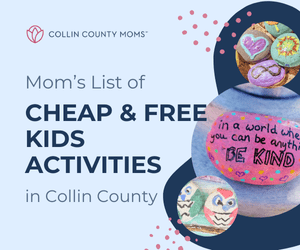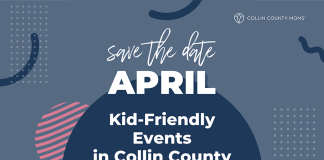I moved to Collin County in 1993 from the Dallas area about the time I was starting my family. There were less than 10,000 people in the city I moved to at the time, and I was thankful to be living in a place that was family-oriented and had so much potential for the future. When my children were younger, it was easy to know just about everyone they came into contact with, and I remember feeling comfortable knowing they were safe. I added to that safety by educating them about “stranger danger.”
As my children grew, I did, too, and decided to further my education to become a mental health professional. I had the opportunity to intern at Children’s Advocacy Center of Collin County (CACCC) in the clinical mental health department. CACCC is a non-profit organization that provides services for victims of child abuse and neglect.
>> RELATED READ :: 5 Things I’m Teaching My Kids About Predators <<
Now, I’m a licensed professional counselor supervisor and the director of clinical services at CACCC. I’ve continued to work here because I believe the services provided at no-charge offer much-needed healing and support to victims of abuse and to their non-offending family members.
I want to share a little bit about my journey as a mom, a long-time (albeit former) Collin County resident, and a mental health professional. I’m thankful to have this incredible opportunity to share what I wish moms in Collin County knew about sexual abuse based on my work at Children’s Advocacy Center.
 Sexual Abuse Is More Common Than You Think
Sexual Abuse Is More Common Than You Think
The reality is about one in 10 children will experience some sort of sexual abuse before their eighteenth birthday. While there are cases of sexual abuse by strangers, 98 percent of children know their abuser. Although we should teach our children about “stranger danger,” it is of greater importance to educate our children about boundaries, body safety, and how to respond to uncomfortable situations.
Children who feel confident to say “no” to an older child or an adult when they feel uncomfortable are at a reduced risk of victimization. Children who are educated about their bodies and about body boundaries are more able to recognize and to speak up when someone crosses a boundary. Parents can benefit by learning to identify the warning signs of grooming, the process by which predators gain access to children.
Sometimes the Abusers Are Children
Some children act out sexually on younger children. While this behavior might lack understanding about what sex is, it should be addressed for both the child who acts out and the child who is acted upon. This should be done in a non-shaming way and can include professional counseling.
>> RELATED READ :: Love Is Respect :: Teen Dating Violence Awareness & What We Can Teach Our Kids NOW <<
Keep in mind, children benefit tremendously when they know they can talk to their parents about sexuality, their bodies, and their concerns without fearing they will get in trouble.
A heartbreaking trend I’ve observed over the years is when children don’t tell a trusted adult about abuse because they are afraid they will get in trouble. Perpetrators of sexual abuse know this and use this to keep victims from disclosing abuse.
Monitor Internet and Social Media Usage
It is crucial to monitor your children’s use of the Internet and social media! I cannot emphasize this enough! Social media and Internet usage are factors in many of the cases we see at Children’s Advocacy Center of Collin County.
The speed at which technology advances and new apps are developed is daunting, but it is vital to monitor your child’s usage continuously. It is also important to have clear rules, limits, and consequences regarding devices and usage, which should be age appropriate.
I encourage parents to have ongoing conversations about these topics. It can seem overwhelming to stay ahead of this one, but you can do it.
Some common things we see at CACCC are:
- Children searching words like “sex” and “porn” and are then exposed to material they aren’t ready for.
- While playing online games, children “make friends” with people who are really targeting them.
- Teens send inappropriate photos to someone they are dating without realizing the ramifications. These pictures may be distributed to others or may be used to extort the sender into sending more.
Another consideration is that human traffickers conduct much of their recruiting virtually. (Yes, there are cases of human trafficking in Collin County.)
Furthermore, many of the kids we see have a lot of unmonitored access to the Internet and social media. The average teen can spend about six hours a day on social media.
 How to Reduce Victimization
How to Reduce Victimization
To some of you, this is all old news. To others, this may be overwhelming. How is it possible to protect children from all the threats that exist in the world? While it would be nearly impossible to protect our children from every threat, there are some things you can do to reduce the risk of victimization and increase a child’s resilience should the unthinkable happen.
You can educate your children about ways to keep themselves safe. You can implement age-appropriate limits and allow age-appropriate freedoms. Every stage of human development has its tasks, challenges, and pitfalls. But it is important for children to learn and navigate those challenges so they grow into healthy, happy, and productive adults.
The number one thing is learn how to meet the emotional needs of your child within a safe, structured environment. Structure and predictability provide a safe environment for your child to develop and grow. Children who perceive that the grown-ups in their lives hear them and care for them fare the best and can navigate life’s challenges successfully.
 For more than 30 years, the Children’s Advocacy Center of Collin County has provided safety, healing, and justice for children and families victimized by abuse and neglect in Collin County.
For more than 30 years, the Children’s Advocacy Center of Collin County has provided safety, healing, and justice for children and families victimized by abuse and neglect in Collin County.













